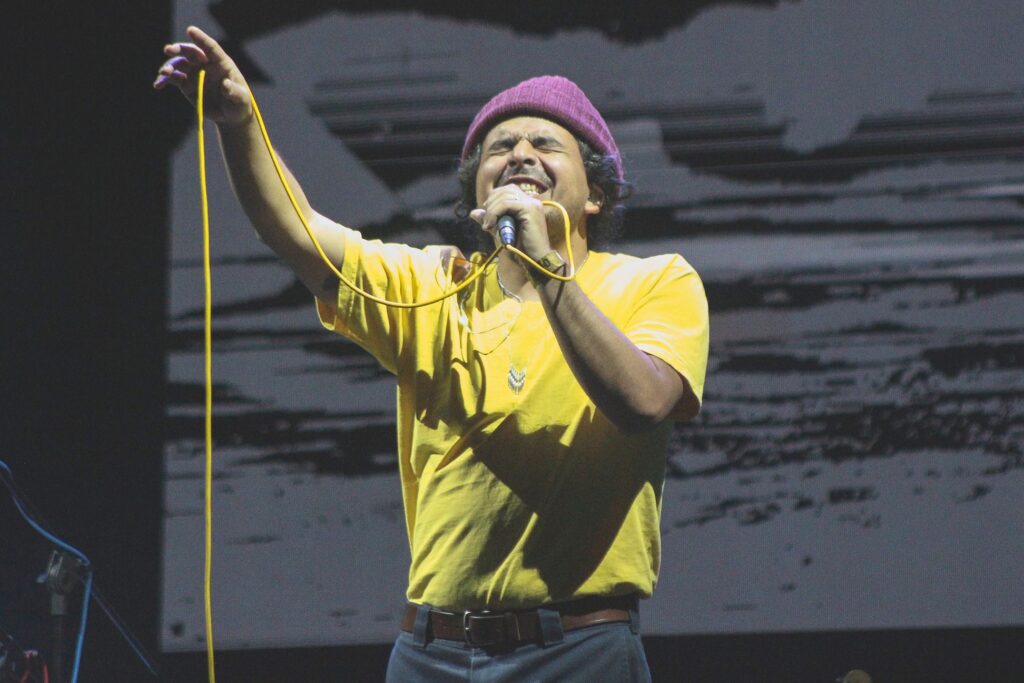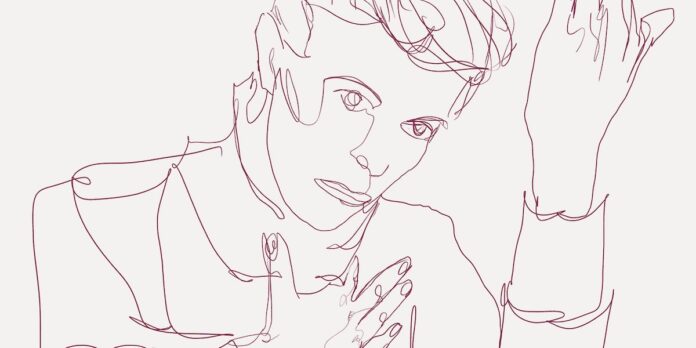Why did London imprint BBE chose to drop a David Bowie cover compilation Modern Love? The answer’s plain as day if you know the label’s history of supporting Black art, and have seen the Thin White Duke’s 1983 interview with MTV VJ Mark Goodman. Bowie famously made Goodman sweat real hard on camera over the lack of Black artists on the music video channel. Ziggy Stardust knew; without Black music, you have no pop music.
So praise BBE for presenting their own market correction. Modern Love is a curation of specially commissioned cover versions of rarities and classics, in a tribute to Bowie that advocates his lesser-known connection to Black music.
The project was archived by music executive and DJ Drew McFadden, alongside BBE Music founder Peter Adarkwah.
“I felt that the connection between Bowie and R&B, jazz, funk, gospel, and all things soulful, had never really been explored before — at least not so much in covers, which tend to lean more towards rock and pop,” says McFadden. “Certainly, there’s been plenty of Bowie covers over the years, but none that have tapped into what seems to have been a big part of his core musical style and direction.”
Modern Love is an album, a record (it feels and plays like it’s lived in vinyl) to make you think about various stages in the Bowie canon. Perhaps even more importantly, it showcases contemporary artists who gravitate towards mixing up audio colors, cross-referencing different eras. Folks who don’t create in vanilla … a true Bowie commonality.
The project features a grade-A roster of ultramodern thinkers who also happen to be exquisite musicians, with selections from Helado Negro, Jeff Parker, Khruangbin, Meshell Ndegeocello, Foxtrott, Miguel Atwood-Ferguson, We Are KING—who contributed the album’s lead single that dropped in January—and Kit Sebastion. They treat the project with the proper verve; Modern Love is a collection that works beautifully in the spirit of Bowie. While some of the tracks sound nothing like the man himself, the focus on the idea of bending arrangements outside of their comfort zone neatly aligns with the artistic legacy of The Man Who Fell to Earth.
From the opening selections, uncanny extraterrestrial moods are released. The symphonic orchestration of “Life On Mars” from Miguel Atwood Ferguson crosses a Spike Lee score with a Wes Anderson expository segment. It set the stakes for this collection quite high from jump.

Helado Negro’s sparse “Sound and Vision” presents a hymnal of sorts, from the clouds. Kit Sebastian boots down the James Bond door with cinematic poise on the stirring “Lady Grinning Soul,” leading us to the heart of this compilation; “Soul Love” by Jeff Parker & The New Breed, featuring Ruby Parker. The laissez faire guitar solo from Jeff gives air to this half-time blues expression, which his daughter Ruby delivering a step-by-step, lyrical vocal reading. The unhurried jazz-fusion reduction washes over you. Once again, Jeff Parker’s inner cosmic blues rearranges your molecules until they settle into an intimate place. Is it coincidence or luck that Bowie rode the crest of the UK’s new jazz awakening just before he expired? Like a Bowie Bond, anything that beloved alien did was no coincidence.
It’s fitting that Khruangbin, the cross-genre trio from Houston, takes on the plastic soul era of the Bowie cannon (during which Luther Vandross played backing vocalist on the Young Americans album), flipping the quirky soul of “Right” into some type of summery, mystic, enchanted funk ride. Equipped with soft-hued vocals, balmy guitar chords, easing bass patterns, and boom-bap drum charts turned down for easy head-nod enjoyment, a once tense—some have called it kinky—arrangement becomes fit for a dank afternoon inner tubing over a dusty ole river with a cold can in hand.
Foxtrott captures Bowie’s ethos of working outside the boundaries in the tucked away nugget “Chant of the Ever Circling Skeletal Family” from Diamond Dogs. The update in 4/4 form reminds us all how much Bowie loved to work in the abstract of stick in the mud rock ‘n’ roll, outside the genre’s square, four-corner parameters.
Did Bowie steal from Jane County, Luther Vandross, Pink Floyd, Iggy Pop, Can, and James Brown? He was highly “inspired” by them, is probably how the extraterrestrial himself would probably answer. But Bowie’s understanding cannot be discredited. There was value in the sources of his inspiration. His vision gave carte blanche to create, see, and deliver to the masses, artistry conjured from the obvious and obscure equally.
Seek out his lip-sync performance of “Fame” on Soul Train, which he later revealed had made him so nervous that he had reached for the liquid courage and performed drunk. With red hair, pale skin, and an unapologetically Black dance floor giving him the good jeers (it could have gone a different direction) at the top of the song, Bowie flubbed the lyrics. But he re-adjusted, licked his lips as a reset, and the Thin White Duke would up giving the theatrics proper for a James Brown-“inspired” half-time funker. Now, that’s art.
In light of the man’s history, Modern Love serves as a modern-day exposition of how Bowie made a conscious choice in his trailblazing career to champion musical genres traditionally pioneered by artists of color.







